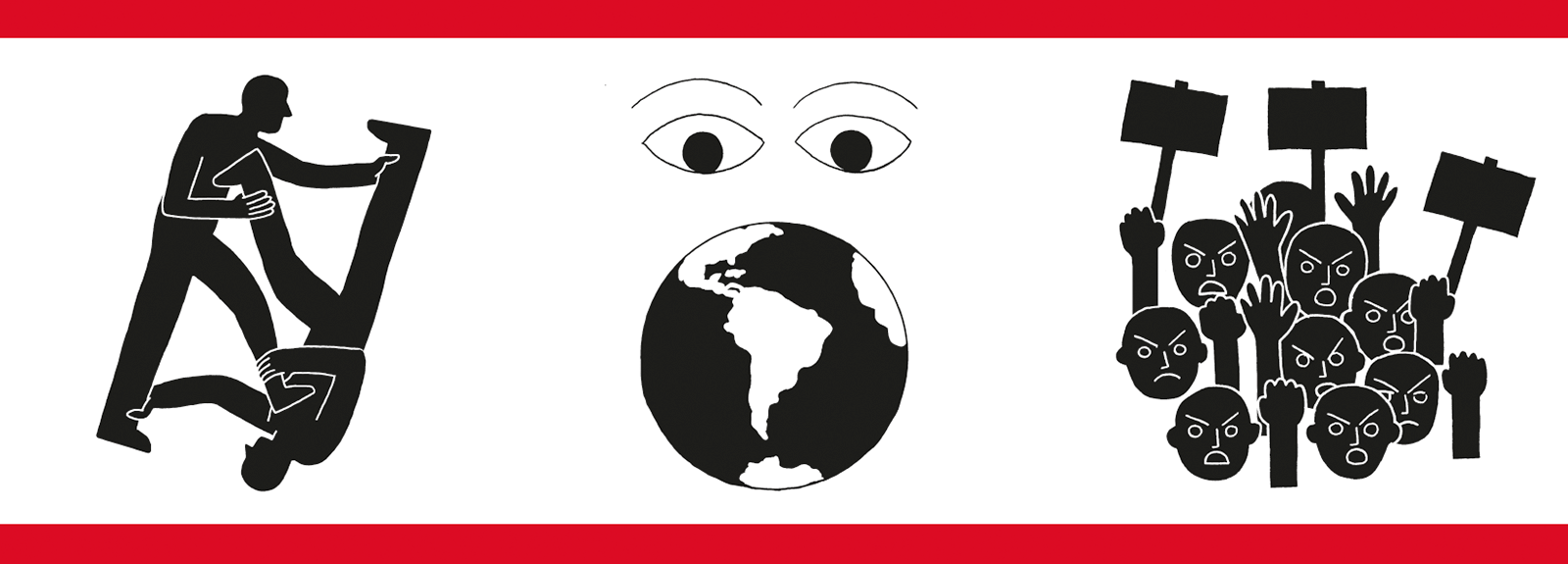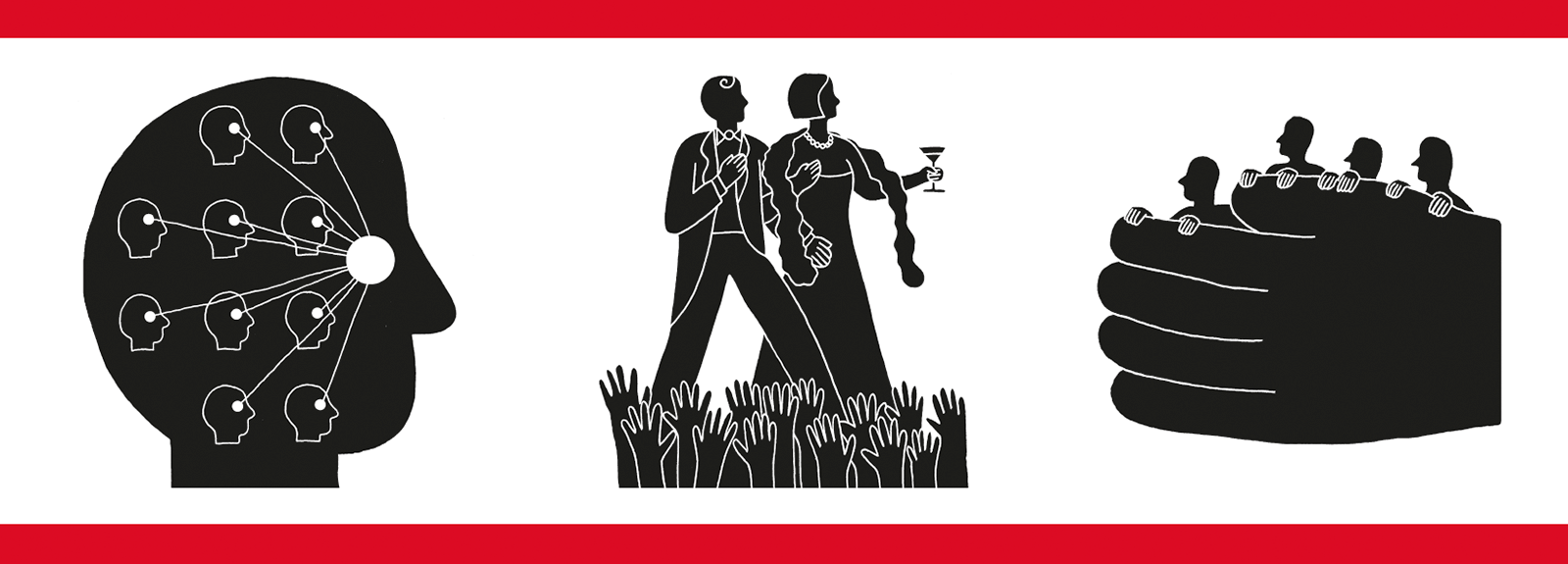
INTRODUCTION
If everyone could have everything they wanted whenever they wanted, there would be no such thing as politics. Whatever the precise meaning of the complex activity known as politics might be—and, as this book illustrates, it has been understood in many different ways—it is clear that human experience never provides us with everything we want. Instead, we have to compete, struggle, compromise, and sometimes fight for things. In so doing, we develop a language to explain and justify our claims and to challenge, contradict, or answer the claims of others. This might be a language of interests, whether of individuals or groups, or it might be a language of values, such as rights and liberties or fair shares and justice. But central to the activity of politics, from its very beginnings, is the development of political ideas and concepts. These ideas help us to make our claims and to defend our interests.
But this picture of politics and the place of political ideas is not the whole story. It suggests that politics can be reduced to the question of who gets what, where, when, and how. Political life is undoubtedly in part a necessary response to the challenges of everyday life and the recognition that collective action is often better than individual action. But another tradition of political thinking is associated with the ancient Greek thinker Aristotle, who said that politics was not merely about the struggle to meet material needs in conditions of scarcity. Once complex societies emerge, different questions arise. Who should rule? What powers should political rulers have, and how do the claims to legitimacy of political rulers compare to other sources of authority, such as that of the family, or the claims of religious authority?
"Political society exists for the sake of noble actions, and not of mere companionship."
Aristotle
Aristotle said that it is natural for man to live politically, and this is not simply the observation that man is better off in a complex society than abandoned and isolated. It is also the claim that there is something fittingly human about having views on how matters of public concern should be decided. Politics is a noble activity in which men decide the rules they will live by and the goals they will collectively pursue.
Political moralism
Aristotle did not think that all human beings should be allowed to engage in political activity: in his system, women, slaves, and foreigners were explicitly excluded from the right to rule themselves and others. Nevertheless, his basic idea that politics is a unique collective activity that is directed at certain common goals and ends still resonates today. But which ends? Many thinkers and political figures since the ancient world have developed different ideas about the goals that politics can or should achieve. This approach is known as political moralism.
"For forms of Government let fools contest. Whate’er is best administered is best."
Alexander Pope
For moralists, political life is a branch of ethics—or moral philosophy—so it is unsurprising that there are many philosophers in the group of moralistic political thinkers. Political moralists argue that politics should be directed toward achieving substantial goals, or that political arrangements should be organized to protect certain things. Among these things are political values such as justice, equality, liberty, happiness, fraternity, or national self-determination. At its most radical, moralism produces descriptions of ideal political societies known as Utopias, named after English statesman and philosopher Thomas More’s book Utopia, published in 1516, which imagined an ideal nation. Utopian political thinking dates back to the ancient Greek philosopher Plato’s book the Republic, but it is still used by modern thinkers such as Robert Nozick to explore ideas. Some theorists consider Utopian political thinking to be a dangerous undertaking, since it has led in the past to justifications of totalitarian violence. However, at its best, Utopian thinking is part of a process of striving toward a better society, and many of the thinkers discussed in this book use it to suggest values to be pursued or protected.
Political realism
Another major tradition of political thinking rejects the idea that politics exists to deliver a moral or ethical value such as happiness or freedom. Instead, they argue that politics is about power. Power is the means by which ends are achieved, enemies are defeated, and compromises sustained. Without the ability to acquire and exercise power, values—however noble they may be—are useless.
The group of thinkers who focus on power as opposed to morality are described as realists. Realists focus their attention on power, conflict, and war, and are often cynical about human motivations. Perhaps the two greatest theorists of power were Italian Niccolò Machiavelli and Englishman Thomas Hobbes, both of whom lived through periods of civil war and disorder, in the 16th and 17th centuries respectively. Machiavelli’s view of human nature emphasizes that men are “ungrateful liars” and neither noble nor virtuous. He warns of the dangers of political motives that go beyond concerns with the exercise of power. For Hobbes, the lawless “state of nature” is one of a war of all men against each other. Through a “social contract” with his subjects, a sovereign exercises absolute power to save society from this brutish state. But the concern with power is not unique to early modern Europe. Much 20th-century political thought is concerned with the sources and exercise of power.
Wise counsel
Realism and moralism are grand political visions that try to make sense of the whole of political experience and its relationship with other features of the human condition. Yet not all political thinkers have taken such a wide perspective on events. Alongside the political philosophers, there is an equally ancient tradition that is pragmatic and concerned merely with delivering the best possible outcomes. The problems of war and conflict may never be eradicated, and arguments about the relationship between political values such as freedom and equality may also never be resolved, but perhaps we can make progress in constitutional design and policy making, or in ensuring that government officials are as able as possible. Some of the earliest thinking about politics, such as that of Chinese philosopher Confucius, is associated with the skills and virtues of the wise counselor.

Rise of ideology
One further type of political thinking is often described as ideological. An important strand of ideological thinking emphasizes the ways in which ideas are peculiar to different historical periods. The origins of ideological thinking can be found in the historical philosophies of German philosophers Georg Hegel and Karl Marx. They explain how the ideas of each political epoch differ because the institutions and practices of the societies differ, and the significance of ideas changes across history.
"The philosophers have only interpreted the world… the point is to change it."
Karl Marx
Plato and Aristotle thought of democracy as a dangerous and corrupt system, while most people in the modern world see it as the best form of government. Contemporary authoritarian regimes are encouraged to democratize. Similarly, slavery was once thought of as a natural condition that excluded many from any kind of rights, and until the 20th century, most women were not considered citizens.
This raises the question of what causes some ideas to become important, such as equality, and others to fall out of favor, such as slavery or the divine right of kings. Marx accounts for this historical change by arguing that ideas are attached to the interests of social classes such as the workers or the capitalists. These class interests gave rise to the great “isms” of ideological politics, from communism and socialism to conservatism and fascism. The social classes of Marx are not the only source of ideological politics. Many recent political ideas have also emerged from developments within liberalism, conservatism, socialism, and nationalism.
Ideological political thinking has also been the subject of hostility and criticism. If ideas are merely a reflection of historical processes, critics argue, that must mean that the individuals caught up in those processes are playing an essentially passive role, and that rational deliberation and argument have limited value. Ideological struggle is rather like the competition between football teams. Passion, as opposed to reason, matters in supporting one’s team, and winning is ultimately all that counts. Many worry that ideological politics results in the worst excesses of realism, in which the ends are seen to justify brutal or unjust means. Ideological politics appears to be a perpetual struggle or war between rival and irreconcilable camps.
Marx’s solution to this problem was the revolutionary triumph of the working class and the technological overcoming of scarcity, which would solve the problem of political conflict. In light of the 20th century, this approach to politics seems to many to be highly overoptimistic, since revolutionary change has been seen to have replaced one kind of tyranny for another. In this view, Marxism and other ideologies are merely the latest forms of unrealistic Utopian moralism.

A disputed future
According to Georg Hegel, political ideas are an abstraction from the political life of a society, state, culture, or political movement. Making sense of those ideas, and the institutions or movements they explain, involves examining their history and development. That history is always a story of how we got to where we are now. What we cannot do is look forward to see where history is going.
In Roman mythology, the Owl of Minerva was a symbol of wisdom. For Hegel, the Owl only “takes flight at twilight.” By this he means that understanding can only come retrospectively. Hegel is warning against optimism about developing ideas for where to go next. He is also issuing a subtle warning against his other famous claim that the rise of the modern state is the end of history. It is very easy to see ourselves as the most progressive, enlightened, and rational age ever—after all we believe in open economies, constitutional government, human rights, and democracy. But as we will see in this book, these are not simple ideas, and they are not shared by all societies and people even today.
The last 80 years of world history have seen the rise of new nation-states as a result of imperial retreat and decolonization. Federations such as Yugoslavia and Czechoslovakia have fragmented into new states, as has the former USSR. The desire for national sovereignty is also strong in places such as Quebec, Catalonia, Kurdistan, and Kashmir. Yet, while peoples have struggled for statehood, states have sought complex federations and political union. The last three decades have seen the rise of the European Union, which aspires to closer political integration, as well as the North American Free Trade area and many other organizations for regional cooperation.
Old ideas of state sovereignty have an awkward role in the new political world of pooled sovereignty, economic cooperation, and globalization. Hegel’s point seems very pertinent here—we cannot predict how we will appear to those in the future, nor whether what seems common sense to us will be seen as persuasive by our descendants.
"Politics is too serious a matter to be left to the politicians."
Charles de Gaulle
Making sense of the present requires an understanding of the variety of political ideas and theories conceived throughout history. These ideas serve as an explanation of the possibilities of the present, as well as a warning against overconfidence in our own political values, and they remind us that the demands of organizing and governing the collective life of society change in ways that we cannot fully predict. As new possibilities for the exercise of power arise, so will new demands for its control and accountability, and with these will come new political ideas and theories. Politics concerns all of us, so we should all be involved in that debate.

